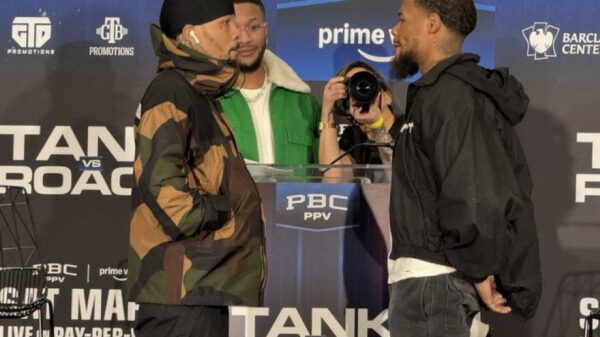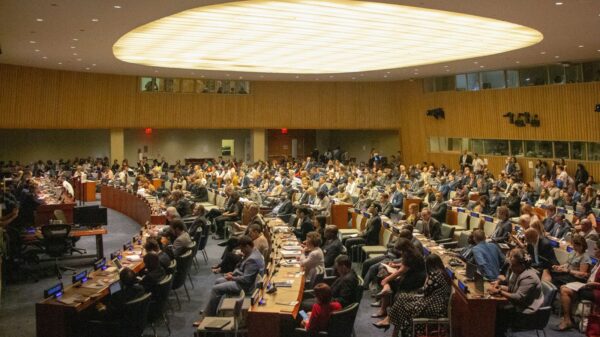
CEO of Meta Mark Zuckerberg regrets giving into White House pressure to censor certain COVID-19 content on the company’s social media platform, Facebook.
In a letter to Ohio Rep. Jim Jordan, Mark Zuckerberg claimed that he was “repeatedly pressured” by the Biden administration and White House officials to remove certain COVID-related content from Meta. The letter was written on Aug. 26, and posted on the GOP House Judiciary Committee’s Meta and X social media accounts.
“In 2021, senior officials from the Biden Administration, including the White House, repeatedly pressured our teams for months to censor certain COVID-19 content, including humor and satire, and expressed a lot of frustration with our teams when we didn’t agree,” Zuckerberg said.
The Meta CEO said that he regrets giving in to government pressure to take content down, while also expressing that Meta made some choices that they would not make today “with the benefit of hindsight and new information,” as written in the letter.
The White House responded to Zuckerberg, asserting that tech companies and other private sectors should take into account the effects their content has on Americans.
According to Politico the White House said, “When confronted with a deadly pandemic, this administration encouraged responsible actions to protect public safety.”
The House Judiciary Committee praised Zuckerberg, calling the letter “a win for free speech.”
Dr. Valeriia Popova is a professor in the political science department at Howard University. She believes that regulating information on the internet is a difficult task.
“On one hand, we hold the First Amendment in high esteem because it’s one of the pillars of democracy. On the other hand, the chaotic nature of social media, where every user is a content creator, presents a challenge of misinformation and disinformation,” Popova said.
The emergence of the online world raised the question of how involved the government should be in controlling social media platforms.
Dr. Symone Campbell is a race and tech postdoctoral fellow at Howard University’s Center for Applied Data Science and Analytics.
She believes there is a fine line between necessary government censorship, and infringing on American’s constitutional right to freedom of speech.
When speaking about the government’s role in censoring certain content, Campbell sighted the jokes and satire about ingesting alcohol and peroxide in the early months of the COVID-19 pandemic. She identified these jokes as “seriously deadly.”
“You have to make sure that the information that social media platforms are allowing does not harm its users. I would suggest that is the fine line where things should be censored,” Campbell said.
With the upcoming presidential election, Campbell commented on the issue of misinformation.
She also pointed out that both Democrats and Republicans are privy to utilizing social media to their advantage.
She cited Vice President Kamala Harris’ use of TikTok reels on Instagram to get people engaged with her content. Campbell also pinpointed the use of artificial intelligence as a tool of influence on the other side of the political spectrum.
“People should stay vigilant in knowing that the government is going to use the media to its advantage in any way possible,” Campbell said.
Popova believes that although it is impossible to track the thousands of electoral news items that appear on the internet, the government should promote healthy online habits amongst citizens.
“The government’s efforts should be directed at educating citizens on how to identify deceitful online information. At the end of the day, if each social media user exercised better judgment in choosing what content to believe, fake news would have a harder time getting their message out,” Popova said.
While there are instances of censorship of certain information, government interference also presents itself in situations of privacy law violations and other related circumstances.
Recently, the social media app TikTok has experienced run-ins with the Department of Justice (DOJ).
On Aug. 2, the department’s public affairs office made a press release, detailing that the DOJ sued TikTok and parent company ByteDance for violations of children’s privacy laws.
The complaint states that since 2019, TikTok “knowingly permitted children to create regular TikTok accounts and to create, view, and share short-form videos and messages with adults on the regular TikTok platform.
The DOJ cites the Children’s Online Privacy and Protection Act (COPPA), which prohibits website operators from knowingly collecting, using, or disclosing personal information collected from children under the age of 13 unless they provide notice to obtain consent from the children’s parents.
According to NPR, the complaint also states that the companies did not honor requests from parents who wanted their children’s accounts deleted, choosing not to terminate accounts even when the forms knew they belonged to children under 13.
The defendants in the case unlawfully collected and retained children’s personal information such as their email addresses, violating COPPA, according to NPR.
In the press release, Principal Deputy Assistant Attorney General Brian M. Boynton, head of the DOJ’s Civil Rights Division said, “The Department of Justice is committed to upholding parents’ ability to protect their children’s privacy.”
“This action is necessary to prevent the defendants, who are repeat offenders and operate on a massive scale, from collecting and using young children’s private information without any parental consent or control,” Boynton said.
Copy edited by Camiryn Stepteau













